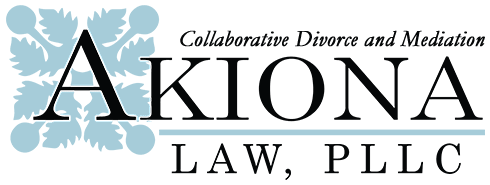Parenting during the COVID-19 pandemic has been incredibly difficult. Adding to the challenges parents have already faced, many parents must make tough decisions about their children’s education. Everett Public Schools has announced that they will be opening schools using a fully remote model in the fall. As a result, children cannot physically attend schools in the fall. Instead, they will need to either do their school at home or with a babysitter. When both parents work full-time, this arrangement can be disastrous, especially when parents are divorced and navigating child custody issues.
Remote Learning Poses Challenges to Divorced Parents
The shutdowns that have stemmed from the coronavirus pandemic have caused parents significant financial strain. Many families report that they cannot pay all of their bills due to being laid off or having their hours reduced. Now, parents have to navigate their children not being allowed to attend schools in person during the fall. For parents whose children are in Everett Public Schools, their only option is to do remote learning with their child, or withdraw their students and homeschool them.
These options are enough to make any parent’s head spin, especially with the underlying financial struggles many families are experiencing. When parents try to stick to their child custody plan, these decisions can become even more challenging to make. Even parents who typically enjoy a friendly and cooperative co-parenting relationship can begin to feel the pressure of these difficult circumstances. Many Washington co-parents are struggling to decide what the best options are for their children’s schooling.
Which Parent Can Decide Whether Their Child Should Return to School?
What happens when one parent decides that a child should return to school, but another parent is worried about the coronavirus and refuses to send the child back to school? Which parent gets the ultimate say in whether the child should attend in-person school once the schools open? The answer depends on what your permanent parenting plan or custody agreement outlines regarding educational decisions for your child.
Most parenting plans will state which parent has the decision-making powers when it comes to education, medical treatment, and other significant issues involving your child. When parents share custody, their parenting plans often say that both parents have a right to make these decisions for their children. Thus, if you and your co-parent disagree about whether your child should return to school, you may need to ask a Washington family court judge to decide your case.
Bringing the Matter Before a Family Court Judge
If you and your spouse share custody and you cannot decide what to do regarding your child’s education during the pandemic, you may need to ask a judge to decide on the matter. There are steps you can take before petitioning the court, however. Many parents benefit from engaging a third-party mediator who can objectively listen to both parents’ concerns and help them create an arrangement that they find mutually beneficial.
The coronavirus pandemic is new for everyone, including Washington’s family court judges. We have never seen public schools and other facilities shut down to the extent that they are currently. There is not a legal precedent for the type of pandemic situation. Many family court judges are just as confused as parents about what options are in the children’s best interest.
Typically, family court judges will expect co-parents to follow the government’s recommendations about schooling this fall and spring. Thus, if you would like your children to enroll in a remote learning program and stay home, but your co-parent wants the kids to attend schools in person when they open up, you could have a difficult time convincing a family court judge that your child is unsafe by attending in-person school. Even if all of the data you supply supports your position, when local school boards decide it is safe enough to open up, judges could err on government officials’ side.
What if One Parent Wants to Send a Child to Daycare or Private School?
For working parents with full-time jobs, staying at home to provide remote learning is not always an option. Some parents have looked into enrolling their children in private schools or enrolling them in daycare full time in order to work. When your co-parenting plan already allows your children to attend daycare, you should be able to continue sending them to daycare facilities that have opened up. If your co-parent is against you enrolling your child in daycare or private school, they will need to show that your child care provider is somehow exposing your child to an unreasonable risk of contracting COVID-19.
Disputes Over Paying for Daycare Costs
Even parents who have had excellent child custody agreements are facing pressure. In some cases, one co-parent has been laid off or furloughed from their work because of coronavirus related shutdowns. In other cases, one parent may have been laid off, and the other parents may have reduced hours, making it difficult for the working parent to pay for expensive daycare costs. Remember that each parent is still responsible for paying all of the childcare amounts outlined in the final divorce order or parenting plan. Even though we are in the middle of a pandemic, you cannot change your parenting plan on your own until one parent returns to court and petitions the court to readjust the previously signed agreements.
Contact an Experienced Lawyer
One of the best things you can do as a co-parent in the middle of this pandemic is to contact an experienced family and divorce lawyer. Even if you are not sure whether you want to petition the court to change your child custody agreement, speaking to a lawyer can help you understand your rights as a parent and help you evaluate your options going forward. Contact Akiona Law, PLLC today to schedule your initial consultation.
